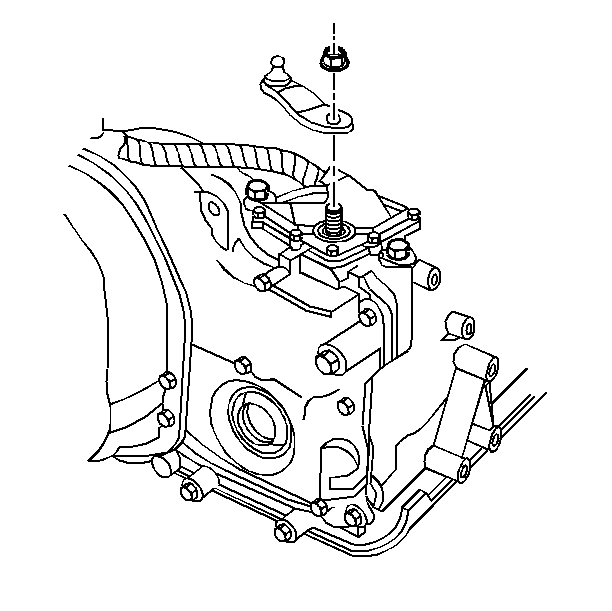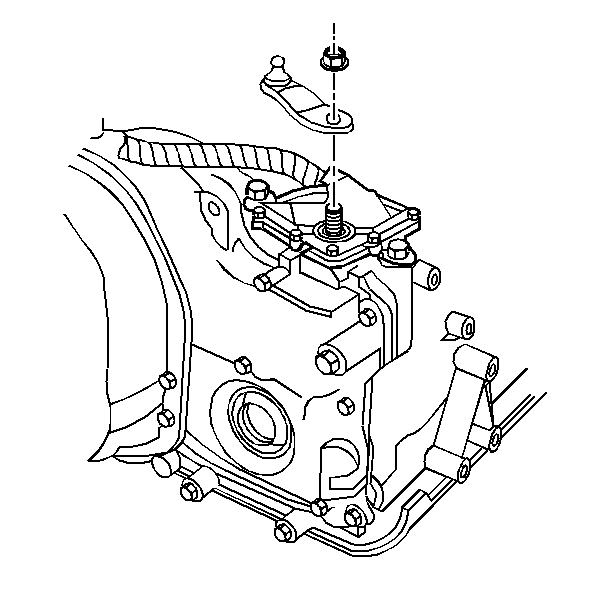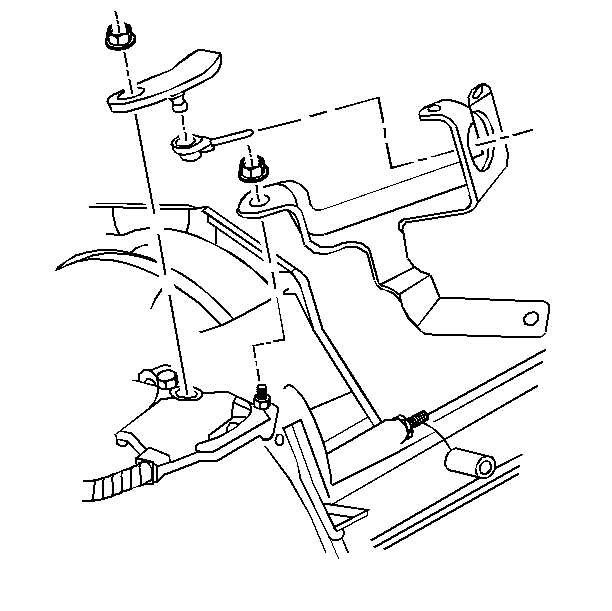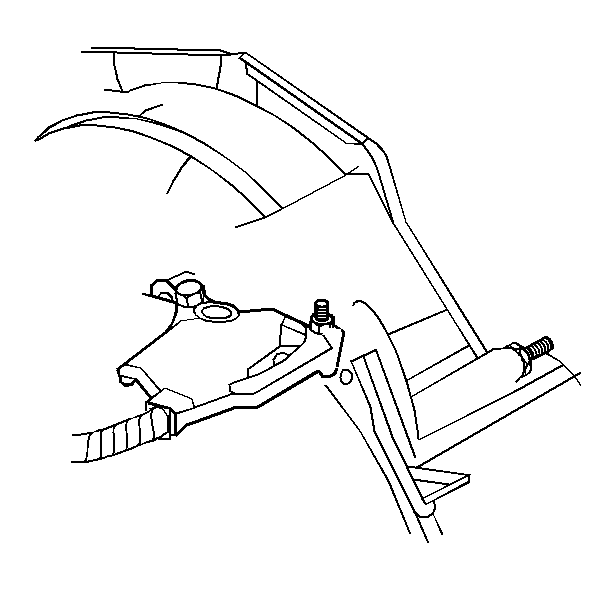Removal Procedure
- Disconnect the negative battery cable. Refer to
Caution: Unless directed otherwise, the ignition and start switch must be in the OFF or LOCK position, and all electrical loads must be OFF before servicing any electrical component. Disconnect the negative battery cable to prevent an electrical spark should a tool or equipment come in contact with an exposed electrical terminal. Failure to follow these precautions may result in personal injury and/or damage to the vehicle or its components.
in General Information. - Remove the shift linkage.
- Disconnect the electrical connector.
- For the 3T40, remove the park/neutral position switch mounting bolts.
- For the 3T40, remove the park/neutral position switch assembly.
- For the 4T40-E, remove the park/neutral position switch mounting bolts.
- For the 4T40-E, remove the park/neutral position switch assembly.




Installation Procedure
Using Old Switch
- Place the shift shaft in N (Neutral).
- Align the flats of the shift shaft with the switch.
- For the 3T40, loosely install the park/neutral position switch mounting bolts.
- For the 4T40-E, loosely install the park/neutral position switch mounting bolts.
- Insert the gauge pin in the service adjustment hole. Rotate the switch until the pin drops in to a depth of 9 mm (9/64 in).
- Remove the gauge pin.
- Connect the negative battery cable.


Tighten
Tighten the bolts to 24 N·m (18 lb ft).
Notice: Use the correct fastener in the correct location. Replacement fasteners must be the correct part number for that application. Fasteners requiring replacement or fasteners requiring the use of thread locking compound or sealant are identified in the service procedure. Do not use paints, lubricants, or corrosion inhibitors on fasteners or fastener joint surfaces unless specified. These coatings affect fastener torque and joint clamping force and may damage the fastener. Use the correct tightening sequence and specifications when installing fasteners in order to avoid damage to parts and systems.
Important: Ensure that the engine will only start in the P (Park) or the N (Neutral) position. Readjust the switch if the engine will start in any other position.
Using New Switch
- Place the shift shaft in the N (Neutral) position.
- Align the flats of the shift shaft to the flats in the park/neutral switch.
- For the 3T40, install the park/neutral position switch assembly.
- For the 4T40-E, install the park/neutral position switch assembly.
- For the 3T40, install the park/neutral position switch mounting bolts.
- For the 4T40-E, install the park/neutral position switch mounting bolts.
- Align the holes with the mounting boss on the transmission. Place the shift control lever in the N (Neutral) position. Do not rotate the switch. The switch is pinned in the N (Neutral) position. If the switch has been rotated and the pin is broken, adjust the switch. Refer to the using old switch installation procedures.
- Connect the negative battery cable.
- Place the transmission control shifter assembly in the N (Neutral) notch in the detent plate.
- Loosen the park/neutral position switch attaching bolts.
- Rotate the switch on the shifter assembly in order to align the service adjustment hole with the carrier tang hole.
- Insert a 2.34 mm (3/32 in) maximum diameter gauge pin to a depth of 9.0 mm (9/64 in).
- Remove the gauge pin.




Tighten
Tighten the bolts to 24 N·m (18 lb ft).
Important: Ensure that the engine will only start in P (Park) or N (Neutral). Readjust the switch if the engine will start in any other position. Refer to the using old switch installation procedures.

Tighten
Tighten the bolts to 24 N·m (18 lb ft).
